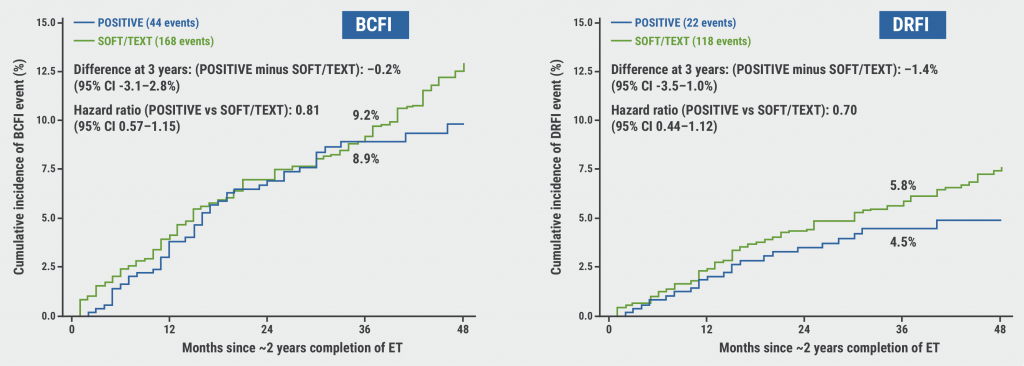An analysis of registry data from 30,785 women in Finland diagnosed with schizophrenia between 1972 and 2014 revealed that exposure to prolactin-increasing antipsychotics for five or more years was associated with a 56% increase in the risk of breast cancer compared with women exposed to these drugs for less than one year, according to the report published in The Lancet Psychiatry.
The study found no increased risk with 1-4 years, or 5+ years of exposure to prolactin-sparing antipsychotic medications compared with less than 1 year.
"Long-lasting exposure to prolactin-increasing antipsychotics might increase the risk of breast cancer in women with schizophrenia," said Heidi Taipale, a research fellow at Niuvanniemi Hospital, Kuopio, Finland, and an assistant professor at the Karolinska Institute in Stockholm, Sweden.
"Many antipsychotics are known to increase prolactin levels through dopamine D2 receptor blockage and dopamine system regulates prolactin synthesis," Taipale said in an email. "A high level of prolactin is considered a possible risk factor for the development of breast cancer," she noted.
"However, not all antipsychotics increase prolactin levels, and in this study, prolactin-sparing antipsychotics use was not associated with risk of breast cancer," Taipale said. "This underlines the importance of choosing antipsychotics without prolactin-increasing properties when possible, and careful monitoring of prolactin levels and using prolactin-reducing strategies when increased levels are observed."
Breast cancer is more common among female schizophrenia patients, the study team notes in their report. To take a closer look at the potential contribution of prolactin-increasing antipsychotics to that increased risk, the researchers devised a nested case-control study using a database that included all 30,785 women aged 16 and older diagnosed with schizophrenia between 1972 and 2014 in Finland.
Among these women, Taipale and her team identified 1,069 diagnosed with breast cancer between January 1, 2000 and December 31, 2017. These cases were matched by age and duration of schizophrenia to 5,339 controls with no cancer diagnosis. The mean age of the cases and controls was 62, and mean time since first schizophrenia diagnosis was 24 years. The three most commonly used antipsychotics were the same in both groups.
The most common type of breast cancer was ductal adenocarcinoma (73%), followed by lobular adenocarcinoma (20%). A higher proportion of cancer cases used cardiovascular medications such as beta blockers and angiotensin system drugs, as well as hormone replacement therapy, compared with controls.
A higher proportion of cases had used prolactin-increasing antipsychotics for five or more years (71·4%) than controls (64.3%). After accounting for other factors that might impact cancer risk, the researchers found increased breast cancer risk (adjusted odds ratio 1.56) among women who took the prolactin-increasing drugs long-term.
The risk for developing lobular adenocarcinoma associated with long-term use of prolactin-increasing antipsychotics was higher (aOR 2.36) than that of developing ductal adenocarcinoma (aOR 1.42).
The new findings don't mean that doctors should completely avoid prolactin-increasing antipsychotics in women, Taipale said. "When prolactin-increasing antipsychotics are used, the risk can be reduced by regular monitoring of prolactin levels and if increased levels are noticed, those should be addressed by switching to prolactin-sparing antipsychotic or augmentation with prolactin-reducing agents," she added.
The findings also underscore the importance of health care professionals promoting proper cancer screening in women with schizophrenia, Taipale said.
While prolactin-increasing antipsychotics may raise the risk of breast cancer in women with schizophrenia, more research is needed to verify that, said Dr. Stephanie Bernik, chief of breast service at Mount Sinai West and a professor of breast surgery at the Icahn School of Medicine at Mount Sinai in New York City, who wasn't involved in the study.
"Breast cancer is a disease that is both genetic and environmental," Dr. Bernik said in an email. "This study suggested that long-term use of prolactin-stimulating antipsychotic medication in schizophrenics can increase the risk of breast cancer. Because these women may have other risk factors for breast cancer, such as obesity and diabetes, a head-on comparison between patients (on) prolactin-stimulating versus prolactin-sparing antipsychotics would be needed to confirm the suggestive findings of this study."
SOURCE: https://bit.ly/3mYlbon The Lancet Psychiatry, online August 30, 2021.
By Linda Carroll
Posted on
Previous Article
« Health status, exercise capacity help predict outcomes in heart failure with mitral regurgitation Next Article
New blood test can help detect early stomach cancer »
« Health status, exercise capacity help predict outcomes in heart failure with mitral regurgitation Next Article
New blood test can help detect early stomach cancer »
Related Articles

November 19, 2021
BrighTNess data may change guidelines

© 2024 Medicom Medical Publishers. All rights reserved. Terms and Conditions | Privacy Policy
HEAD OFFICE
Laarderhoogtweg 25
1101 EB Amsterdam
The Netherlands
T: +31 85 4012 560
E: publishers@medicom-publishers.com

